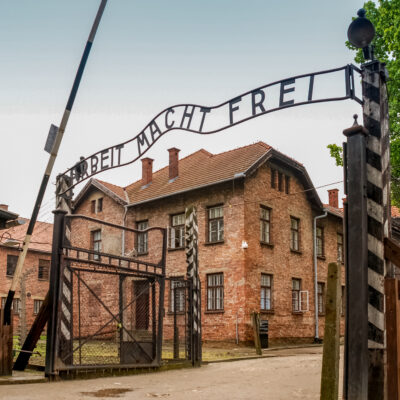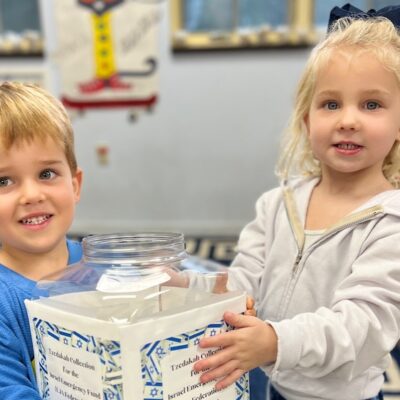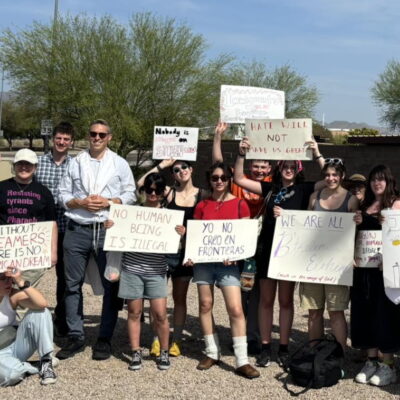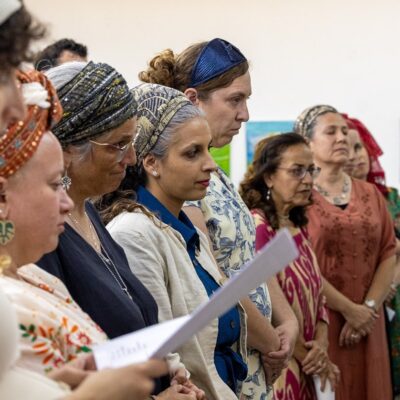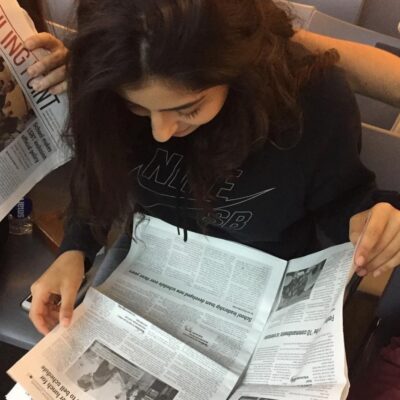The Endangered Next Generation of Israeli American Jews

By Rabbi Hyim Shafner
Close to a million Israelis live in countries other than Israel. The majority have settled in the United States and Canada for the long run, teaching at universities, running business and becoming entrepreneurs. Most identify as secular and send their children to public schools. Though they maintain a vague Israeli identity most of these children call their current country of residence home. Far removed from Israel which provided them Jewish identity by osmosis, their Jewish life, identity, and culture is vulnerable.
Diaspora Jews, no matter their denomination, for the most part retain their Jewish identity by forming religious communities around synagogues. Most secular Israelis did not attend synagogues in Israel and may never have been in a synagogue. They were acculturated to see religion as dangerous, political, and coercive. They do not easily connect to non-Orthodox synagogues, because, as the cliché goes, for secular Israelis the synagogue they do not attend is Orthodox.
Secular Israelis in the diaspora retain some of their cultural heritage through social connections with fellow Israelis and by gathering for events such as Israel Independence Day, but Israeli culture alone will not act as a bulwark against assimilation. The American Jewish community with only a few exceptions, has not begun to address this population’s Jewish needs and for the most part is not sure how to do so.
Several years ago an Israeli came to my synagogue, Bais Abraham Congregation in St. Louis, Missouri, and told me there was one thing secular Israelis desperately wanted from the Jewish community: a school to teach their children to read and write the Hebrew language. Realizing this was an opportunity to engage secular Israelis on their own terms, and perhaps eventually to engage them in the Jewish community and religious life, we opened a synagogue based religious school specifically for the children of self-identifying secular Israelis. We staffed the school with experienced Israeli language teachers and used opportunities like Jewish holidays to teach the students about Jewish life, about which, to their parents chagrin, they know almost nothing.
Over the course of the first few years family after family expressed that they had never expected to feel at home in a synagogue with religious people. They expected coercion, derision, and alienation. Instead, they were surprised to feel embraced and at home in a Jewish religious environment. Bais Abraham is particularly suited for them as an Orthodox congregation that has consciously removed as many barriers to entry as possible, with a diverse congregational makeup of religious from birth, Jews raised secular, converts, multi-faith families, GLBTQ Jews, and many individuals on a spiritual journey.
Two years into the school’s existence the Israeli families began to trust us and to realize the importance of some Jewish education in America to the extent that they asked for an extra hour of study each week for their children to learn about Judaism. I saw this as the schools’ true raison d’etre. The “Shelanu” Hebrew School, as it is know, now acts as a foundation upon which we provide holiday parties, free High Holiday seats, Shabbat meals, classes and connection for Israeli families to the American Jewish community.
Opening up Jewish Community Centers and other culturally Jewish institutions to Israelis will never be enough to retain Israelis in the diaspora as part of the Jewish people. It will take congregations that are open and welcoming in nature, many of them, learning about Israeli culture and the subtleties of engaging this population and meeting their needs, along with sufficient funding, to retain their children as part of the Jewish people and engage them in Jewish life.
I believe we now face an approximately 20 year window before the children of these Jews assimilate en masse. It happens as they finish high school and go to college in the U.S. with almost no Jewish religious knowledge, identity or practice. They have less to connect them to their Judaism than their Reform or Conservative American born, synagogue connected, Hebrew school educated counterparts.
We can make a big difference in retaining these Jews and their children as part of the Jewish people and Jewish religion. It is, in many ways, much easier than engaging a secular American Jew in that Israelis all have much stronger Jewish identities and memories. If we do not wake up quickly and put resources toward this challenge, equipping synagogues across the country to engage Israelis and to understand their unique culture and needs it will soon be too late for the next generation.
Rabbi Hyim Shafner, is the rabbi of Bais Abraham Congregation in St. Louis, Missouri. Formerly he was the Rabbi of the Hillel at Washington University in St. Louis for eight years and the Rabbi of India for the American Jewish Joint Distribution Committee. He has Rabbinical Ordination, an MSW in social work and an MA in Jewish philosophy from Yeshiva University in New York. Rabbi Shafner can be reached at: rabbi

